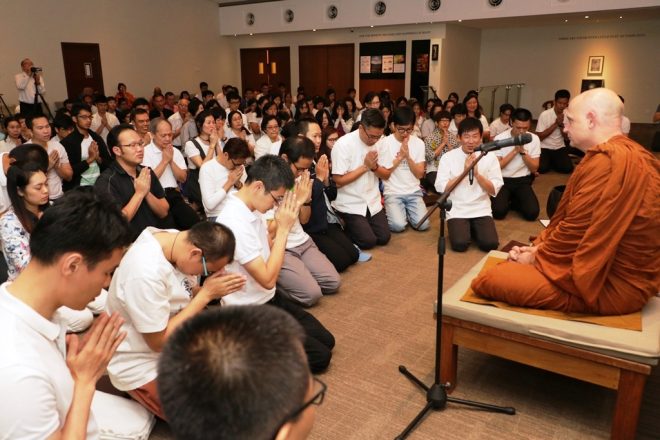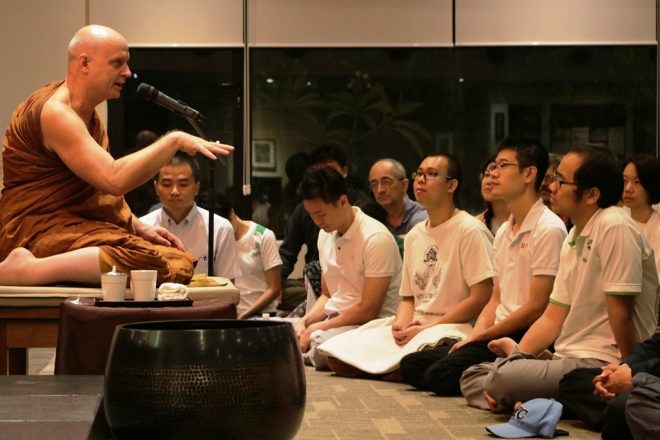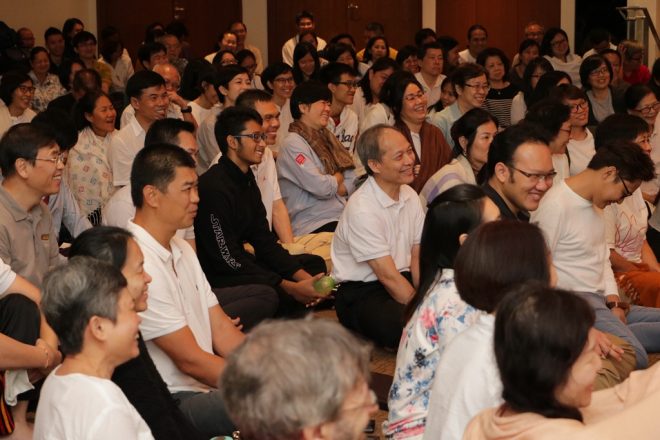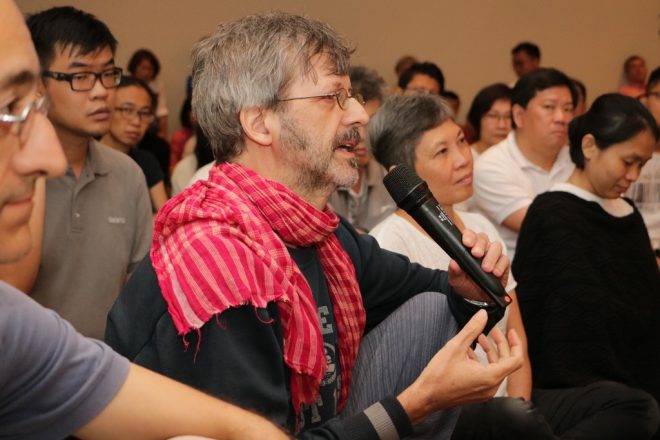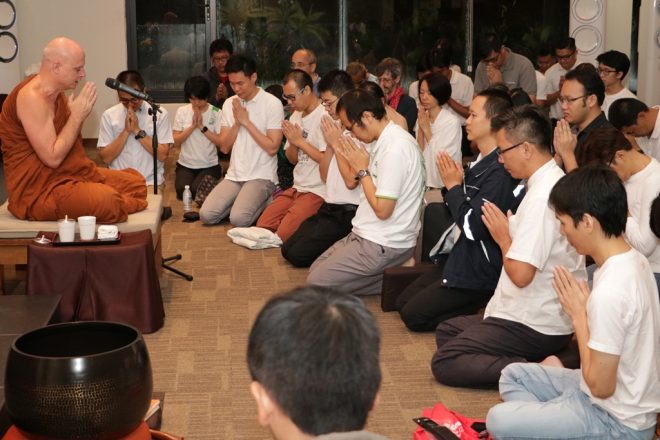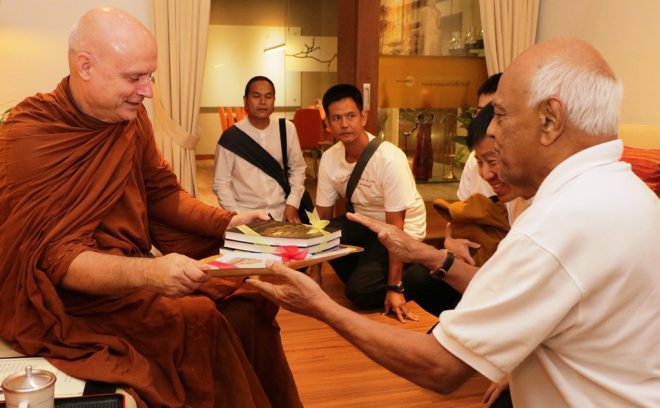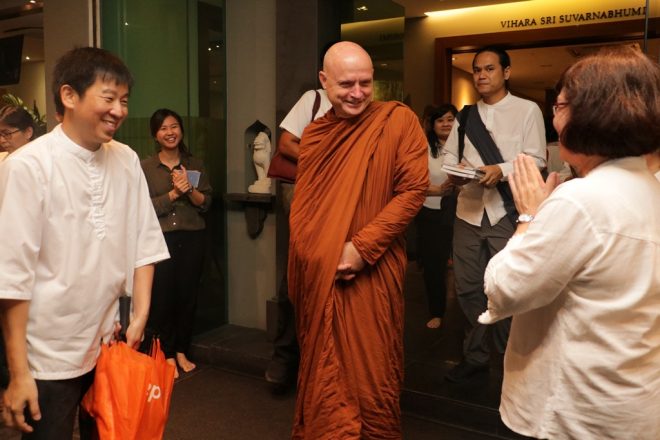Dhamma teaching by Ajahn Jayasaro
Dhamma teaching by Ajahn Jayasaro
Friday 10 November marked another auspicious evening for Nalanda devotees as world-renowned Dhamma teacher, Ven. Ajahn Jayasaro, graced Nalanda Centre to share his words of wisdom. Faith and enthusiasm to learn Dhamma was clearly evident in many devotees as the Teaching Hall was packed to the brim despite the heavy evening downpour.
Ajahn Jayasaro in his talk first pointed out the mistaken idea that “the more we give others, the better we are”. If we are motivated to help others but do not practise the Dhamma ourselves, we will lack self-awareness and maturity, resulting in entanglement in worldly dhammas such as praise and blame. This lack of self-knowledge and awareness undermines our ability to help others in a sustainable way. We must thus practise the Dhamma to make our lives more holistic.
Many people view Dhamma practice as solely formal meditation and neglect other areas in life that also support spiritual development. This view will result in conceit, attachment to views, and opinions about ourselves and others. Ajahn advised us to intersperse our individual practice with community living as these two make up the whole of Dhamma practice.
By following the Noble Eightfold Path, we give meaning to our lives. ‘Practice’ is what we do and how we approach our lives through bodily actions, speech, and thoughts. It begins with generosity, which is a way of liberating ourselves from selfishness and attachment to possessions. As we progress along its practice, we change the perception of who we are – by gradually seeing ourselves as givers, always with something to give.
Another essential practice is morality, which is a great gift to the world because it creates a sense of security and trust with people around us. Precepts are basic objects of mindfulness that illuminate the defilements for us to work on. Having taken the precepts voluntarily, we strive to train our body, speech and mind to withstand the fluctuation of external conditions.
When the mind is too agitated that it avoids formal meditation, it is often due to some misconducts in our Sīla. To overcome the defilements, understanding has to come from direct experience. We learn to go against the habits of defilements by undertaking formal practice. When our mind lacks enthusiasm, wise reflection helps to inspire the mind and keeps it from wandering to the past and future.
We can also arouse our initial inspiration, by recollecting inspiring teachings and teachers we look up to, and keep going on with our practice.
The training of Sīla, Samadhi, and Pañña is a gradual process. Ajahn encouraged us to put forth effort to cultivate our body, speech and mind in accordance to the Noble Eightfold Path, which gives us direction and purpose in life. Let us put these pearls of wisdom into action and strive on diligently in our practice. Sadhu anumodana.


